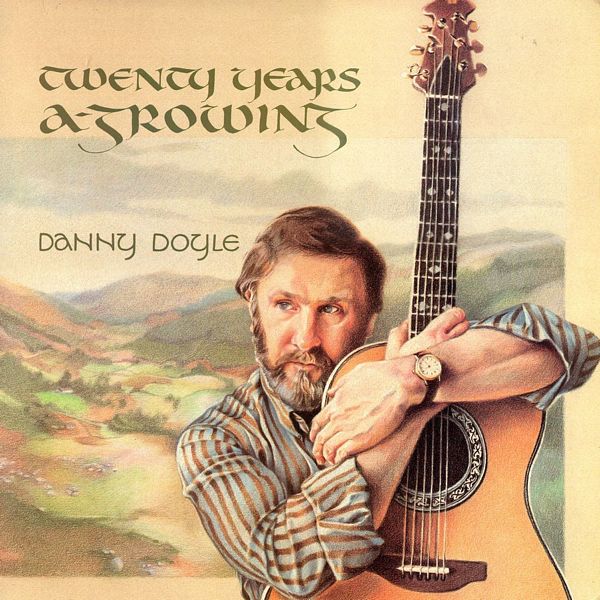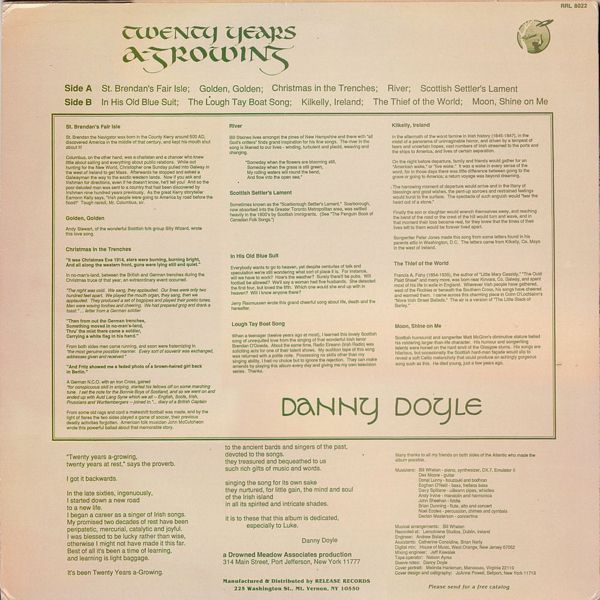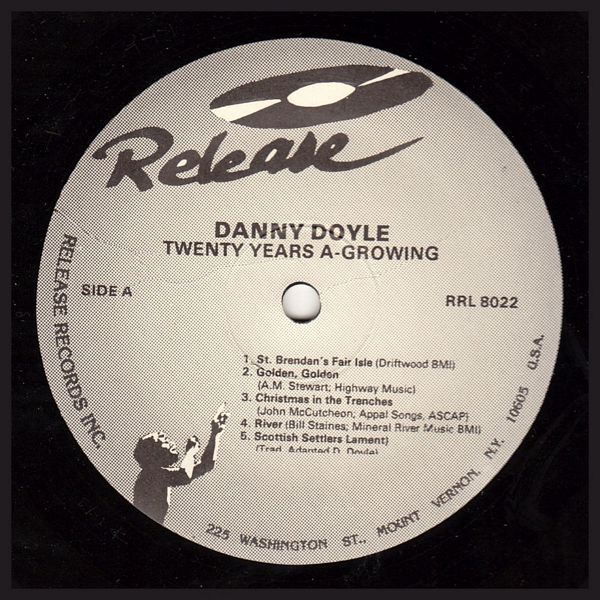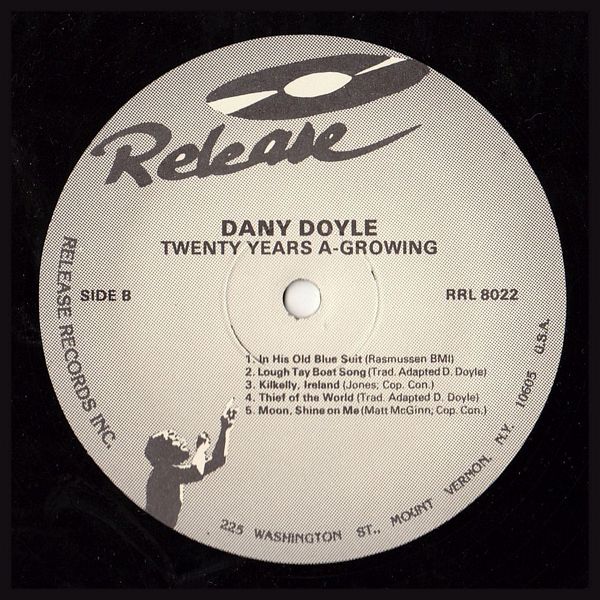

 |


 |
St. Brendan's Fair Isle
St. Brendan the Navigator was born in the County Kerry around 500 AD, discovered America in the middle of that century, and kept his mouth shut about it!
Columbus, on the other hand, was a charlatan and a chancer who knew little about sailing and everything about public relations. While out hunting for the New World, Christopher one Sunday pulled into Galway in the west of Ireland to get Mass. Afterwards he stopped and asked a Galwayman the way to the exotic western lands. Now if you ask and Irishman for directions, even if he doesn't know, he'll tell you! And so the poor deluded man was sent to a country that had been discovered by Irishmen nine hundred years previously. As the great Kerry storyteller Eamonn Kelly says, "Irish people were going to America by road before the flood!" Tough ravioli, Mr. Columbus, sir.
Golden, Golden
Andy Stewart, of the wonderful Scottish folk group Silly Wizard, wrote this love song.
Christmas In the Trenches
"It was Christmas Eve 1914, stars were burning, burning bright,
And ail along the western front, guns were lying still and quiet."
In no-man's-land, between the British and German trenches during the Christmas truce of that year, an extraordinary event occurred.
"The night was cold. We sang, they applauded. Our lines were only two hundred feet apart. We played the mouth organ, they sang, then we applauded. They produced a set of bagpipes and played their poetic tunes. Men were waving torches and cheering. We had prepared grog and drank a toast." … letter from a German soldier
"Then from out the German trenches,
Something moved in no-man's-land,
Thru' the mist there came a soldier,
Carrying a white flag in his hand."
From both sides men came running, and soon were fraternizing in
"the most genuine possible manner. Every sort of souvenir was exchanged,
addresses given and received."
"And Fritz showed me a faded photo of a brown-haired girl back in Berlin."
A German N.C.O. with an Iron Cross, gained
'for conspicuous skill in sniping, started his fellows off on some marching tune. I set the note for the Bonnie Boys of Scotland, and so we went on and ended up with Auld Lang Syne which we all — English, Scots, Irish, Prussians and Wurttembergers — joined in." … diary of a British Captain
From some old rags and cord a makeshift football was made, and by the light of flares the two sides played a game of soccer, their previous deadly activities forgotten. American folk musician John McCutcheon wrote this powerful ballad about that memorable story.
River
Bill Staines lives amongst the pines of New Hampshire and there with "all God's critters" finds grand inspiration for his fine songs. The river in the song is likened to our lives — winding, turbulent and placid, weaving and changing.
"Someday when the flowers are blooming still,
Someday when the grass is still green,
My rolling waters will round the bend,
And flow into the open sea."
Scottish Settler's Lament
Sometimes known as the "Scarborough Settler's Lament." Scarborough, now absorbed into the Greater Toronto Metropolitan area, was settled heavily in the 1800's by Scottish immigrants. (See 'The Penguin Book of Canadian Folk Songs.")
In His Old Blue Suit
Everybody wants to go to heaven, yet despite centuries of talk and speculation we're still wondering what sort of place it is. For instance, will we have to work? How's the weather? Surely there'll be pubs. Will football be allowed? We'll say a woman had five husbands. She detested the first four, but loved the fifth. Which one would she end up with in heaven? Will I know anyone there?
Jerry Rasmussen wrote this grand cheerful song about life, death and the hereafter.
Lough Tay Boat Song
When a teenager (twelve years ago at most), I learned this lovely Scottish song of unrequited love from the singing of that wonderful Irish tenor Brendan O'Dowda. About the same time, Radio Eireann (Irish Radio) was soliciting acts for one of their talent shows. My audition tape of this song was returned with a polite note. Possessing no skills other than my singing ability, I had no choice but to ignore the rejection. They can make amends by playing this album every day and giving mo my own television series. Thanks.
Kllkelly, Ireland
In the aftermath of the worst famine in Irish history (1845-1847), in the midst of a panorama of unimaginable horror, and driven by a tempest of fears and uncertain hopes, vast numbers of Irish streamed to the ports and the ships to America, and lives of certain separation.
On the night before departure, family and friends would gather for an "American wake," or "live wake." It was a wake in every sense of the word, for in those days there was little difference between going to the grave or going to America; a return voyage was beyond dreaming.
The harrowing moment of departure would arrive and in the litany of blessings and good wishes, the pent-up sorrows and restrained feelings would burst to the surface. The spectacle of such anguish would 'tear the heart out of a stone."
Finally the son or daughter would wrench themselves away, and reaching the bend of the road or the crest of the hill would turn and wave, and in that moment their loss became real, for they knew that the times of their lives left to them would be forever lived apart.
Songwriter Peter Jones made this song from some letters found in his parents attic in Washington, D.C. The letters came from Kilkelly, Co. Mayo in the west of Ireland.
The Thief of the World
Francis A. Fahy (1854-1935), the author of "Little Mary Cassidy," "The Ould Plaid Shawl" and many more, was born near Kinvara, Co. Galway, and spent most of his life in exile in England. Wherever Irish people have gathered, west of the Rockies or beneath the Southern Cross, his songs have cheered and warmed them. I came across this charming piece in Colm O'Lochlainn's "More Irish Street Ballads." The air is a version of 'The Little Stack of Barley."
Moon, Shine on Me
Scottish humourist and songwriter Matt McGinn's diminutive stature belied his roistering larger-than-life character. His humour and songwriting talents were honed on the hard anvil of the Glasgow slums. His songs are hilarious, but occasionally the Scottish hard-man facade would slip to reveal a soft Celtic melancholy that could produce an achingly gorgeous song such an thin. He died young, Just a few years ago.
"Twenty years a-growing, twenty years at rest," says the proverb.
I got it backwards.
In the late sixties, ingenuously, I started down a new road to a new life. I began a career as a singer of Irish songs. My promised two decades of rest have been peripatetic, mercurial, catalytic and joyful. I was blessed to be lucky rather than wise, otherwise I might not have made it this far. Best of all it's been a time of learning, and learning is light baggage. It's been Twenty Years a-Growing.
To the ancient bards and singers of the past, devoted to the songs, they treasured and bequeathed to us such rich gifts of music and words. Singing the song for its own sake they nurtured, for little gain, the mind and soul of the Irish island in all its spirited and intricate shades.
It is to these that this album is dedicated, especially to Luke.
Danny Doyle